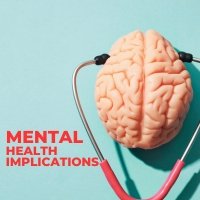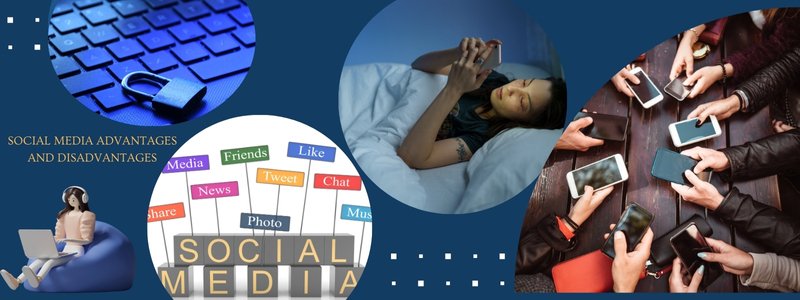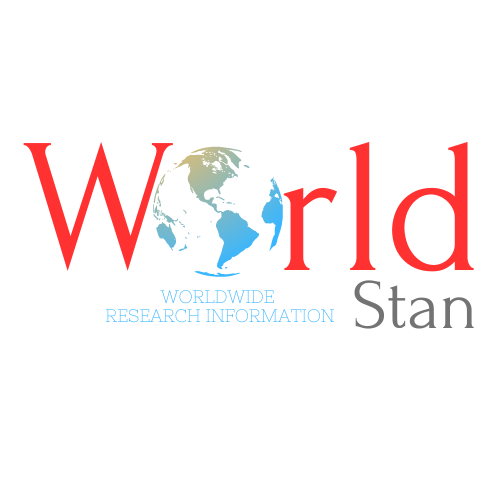Table of Contents
ToggleExploring the Social Media Advantages And Disadvantages:
Social media plays a big role in our daily lives, changing how we talk, learn, and work. As we go through this lifestyle, it’s important to look at both the good and bad sides of social media.

Advantages of Social Media:
A major advantage of social media is its extraordinary capacity to enhance communication. These platforms allow individuals to stay connected with family and friends over vast distances, creating a global community. Furthermore, social media serves as a powerful networking tool, enabling professionals to build connections that can significantly propel their careers forward.
Innovative Business Marketing Strategies:
From a business perspective, social media has evolved into an essential marketing tool. Companies use these platforms to reach broad audiences, interact with customers, and build brand loyalty. The capability to target specific demographics with personalized advertising campaigns greatly improves marketing efficiency. Additionally, social media analytics provide businesses with crucial insights into consumer behavior, facilitating informed decision-making.
Advanced Educational Access:
In the field of education, social media provides unparalleled access to a wealth of information and resources. Educational institutions and independent educators utilize these platforms to distribute knowledge, engage with students, and foster collaborative learning environments. The ease of sharing educational content helps close accessibility gaps, offering opportunities for continuous learning.

Disadvantages of Social Media:
Despite the numerous advantages, social media also presents disadvantages that require careful management.


Mental Health Implications:
A major issue is the effect on mental well-being. Extended exposure to social media can lead to feelings of inadequacy and anxiety, as individuals often compare themselves to idealized versions of others’ lives. Moreover, the pressure to maintain a constant online presence can contribute to stress and burnout.
Spread of Misinformation:
Another major issue is the rapid spread of misinformation. The quick dissemination of false or misleading information on social media can have severe consequences, including the erosion of public trust and the intensification of societal divisions. Although efforts to combat misinformation are ongoing, the vast amount of content makes this a persistent challenge.
Privacy and Data Protection Issues:
Privacy concerns are also critical in discussions about social media. Users frequently share personal information that can be exploited for malicious purposes. Data breaches and the unauthorized use of personal data for targeted advertising complicate the landscape further, raising significant ethical and legal questions about data protection.
Addiction and Decreased Productivity:
Finally, the addictive nature of social media cannot be overlooked. These platforms are often designed to encourage prolonged use, which can detract from real-life interactions and reduce productivity. The constant stream of notifications and the appeal of instant gratification create a cycle that can be difficult to break.
Conclusion: Achieving Equilibrium
In conclusion, while social media offers considerable benefits in communication, education, and business, it also presents substantial challenges that must be addressed. As we continue to incorporate these platforms into our lives, it is crucial to adopt a balanced approach that maximizes the advantages while mitigating the disadvantages, ensuring that social media has a positive impact on society.

Benefits of Social Media:
Social media lets us connect with people all over the world instantly. This global reach helps us build relationships, share cultures, and work together across distances. It means we can stay in touch with family and friends no matter where they are, and businesses can reach customers everywhere.
Sharing news and updates has become very easy with social media. We can keep up with global events, learn new things quickly, and join important conversations. This quick access to information is especially helpful during emergencies or major events, making sure we are well-informed and can respond promptly.
For businesses, social media is a powerful tool for marketing and connecting with customers. It’s an excellent way to show off products, engage with clients, and build loyalty. Targeted ads allow businesses to reach the right people efficiently. Even small businesses can compete with larger ones thanks to affordable social media marketing.
Complex Impacts:
The effects of social media are not all positive. It gives people a platform to voice their opinions and support change, but it also spreads false information, leads to cyberbullying, and affects mental health. It’s crucial to understand these mixed impacts to use social media wisely.
Issues That Need Addressing:
Social media has several challenges. Fake news spreads quickly, leading to confusion and misinformation. Privacy is a significant concern, with risks of data breaches and misuse. Additionally, the addictive nature of social media can harm mental health, causing issues like anxiety and reduced productivity.
Evaluating the Merits and Downsides of Social Media:
To make the most of social media while avoiding its downsides, we need to balance its benefits and challenges. While the ability to connect globally, share information, and create business opportunities are significant advantages, the spread of misinformation, privacy issues, and mental health impacts are serious concerns.
Finding a Balance:
To use social media effectively, we should verify information before sharing it, protect our privacy, and set limits to avoid overuse. It’s also important for policymakers and social media platforms to create rules and tools that keep users safe and promote positive engagement. By doing this, we can harness the power of social media to improve our lives and society now and beyond.
How Do Instant Communication and Sales Benefit Consumers?

Social media allows businesses to offer customer support around the clock. Chatbots and social media managers can respond to questions and solve problems anytime, improving customer satisfaction and trust. This 24/7 availability is a big plus for consumers.
Shopping on social media is very convenient. You can buy products directly from your social media feed at any time, without worrying about store hours. This is especially useful for busy people who need the flexibility to shop whenever they want.
Social media also lets customers give feedback instantly. Businesses can quickly address needs, fix problems, and improve their products based on this feedback. Positive feedback can boost a company’s reputation, while negative feedback provides valuable insights for improvement.

Prof. Mian Waqar Ahmad
Prof. Mian Waqar Ahmad, a dynamic force straddling the realms of academia and digital media. As a distinguished Lecturer in Information Sciences, he imparts knowledge within the academic sphere, igniting the minds of his students. Beyond the classroom, Prof. Mian Waqar Ahmad dons the hat of a seasoned blogger on Worldstan.com, where his insightful posts delve into the intricacies of information sciences. His digital footprint extends even further as a YouTuber, leveraging the platform to share his expertise and make complex concepts accessible to a global audience. Prof. Mian Waqar Ahmad’s journey embodies the fusion of traditional education and contemporary digital outreach, leaving an indelible mark on the evolving landscape of information sciences. Explore his world at Worldstan.com and witness the convergence of academia and the digital frontier.

Simply desire to say your article is as surprising The clearness in your post is simply excellent and i could assume you are an expert on this subject Fine with your permission let me to grab your feed to keep up to date with forthcoming post Thanks a million and please carry on the gratifying work
THANKS SO MUCH
I am curious to find out what blog platform you’re using?
I’m having some small security issues with my latest website and
I’d like to find something more safeguarded. Do you have any solutions?
Yes please contact official email.